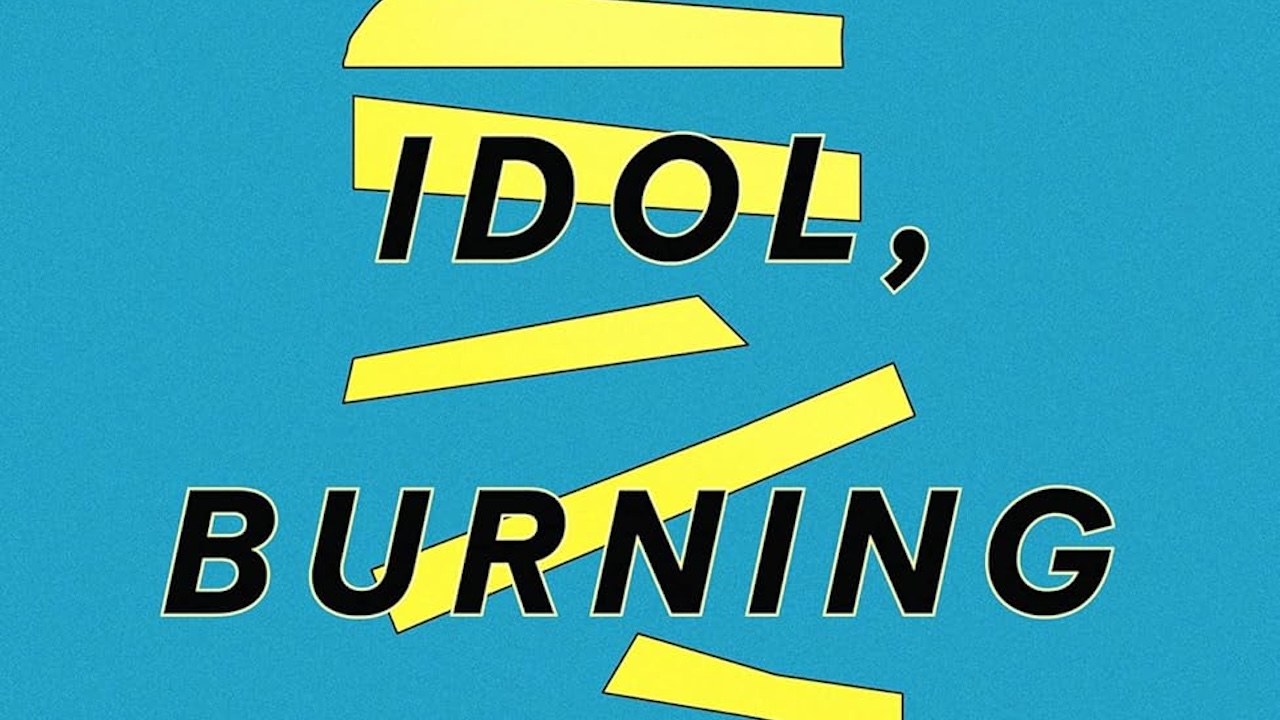Contains comments and discussion of Usami Rin’s novel “Suishin, Burn”, which won the Akutagawa Award and was nominated for the Honya Taisho (Bookstore Taisho) Award.
Note that this article contains spoilers and should be read after reading it.
Not related to this discussion, but I really like the design of the book’s cover, with the slightly grayish pink and the main character hanging from the top.
summary
Akari, the main character, is a high school student who is not satisfied with her life and devotes her days to her “guess life” (activities to support her “guesses”). Her life is supported by her one-sided love and respect for her idol, Ueno Masayuki. One day, however, her world is shaken when news breaks that her idol crush has beaten up a fan. This incident becomes an opportunity for her to explore the distance between her and her guess and the psychological impact of her devotion to her guess life.
They resonate with the guesser and begin to love it as their ideal image.
I know this is a foolish question not only for this book, but for those who are engaged in guesswork, but it is not as simple as guesswork = unfulfilled love. If you treat it in such a simplistic manner, you will end up either being offended or not being taken seriously by those who are engaged in guesswork.
Akari’s case goes back to the age of four, when she saw a play in which her guess played Peter Pan and repeatedly said, “I don’t want to grow up,” to which Akari resonated, saying, “These are words for me.
I felt strongly affirmed that it was okay to feel the pain of carrying the weight and becoming an adult, and I felt connected to my guess.
Later, time stands still, the protagonist becomes a high school student, and Suisin is active as an idol group. Akari senses that although on the outside, Suyushi has become a young man with a calm atmosphere, the look he gives at a moment’s notice, as if he is staring at something from the bottom of his eyeballs, has not changed from when he was a child. She senses the light that only someone who has entered the entertainment industry and continued to push himself can produce, and she begins to love Regui as an ideal image in the midst of her own life that is not going well (e.g., she cannot study or handle her part-time job well).
Not merely an ideal image, Reisui also has a humanistic side to her, in that she is often misunderstood because of her all-too-refusing tone, which resonates with Akari, who feels that she is similar to him in this respect. Rather, it is because she felt that she had something in common with herself that she saw her guess as a hero, a senior figure in her life who has grown up with the weight of being in the entertainment industry and carrying it on her shoulders.
There are cases in which people may want to nominate an idol who is impeccably perfect to them, but perfect idols tend to be the object of worship, while idols who have a little weakness, such as an innocent side or a goofy side that they can relate to, make fans feel closer to the idol and make them more likely to fall in love with the nominee. I think it is easier for them to become more involved with their idols (although “weak” may not be the right word).
Meaning of Cotton Swab
The climax of the “Suishin, Bokuyu” scene depicts Akari smashing a case of cotton swabs on the floor.
I wasn’t me if I didn’t guess. My life without my guesses was an afterlife. (Omitted) I think the moment when he erupted the power he had been holding back in his eyes and tried to destroy something for the first time without thinking about the stage, has jumped over a year and a half and is still flowing in my body.
Idol, Burning,” Usami Rin
The incident, which may or may not have been true, in which the guesser punched the fan, must have given Akari some courage that the guesser, who had been living as an adult with the weight on his shoulders (in a sense pandering to society), had finally come out of his shell.
Nevertheless, as a result, one year later, the guesser ends up going from being an idol to an ordinary person due to the dissolution of the idol group.
The action of the guesser punching the fan gives Akari the courage to try and break her own current unsuccessful life, but in the end, she chooses in the blink of an eye a cotton swab, which is the cheapest way to clean up the mess.
And although he realizes this in the blink of an eye, he still feels a sense of despair and resignation: “So this is me. I can’t break free from society and worldly cares and live freely, and I don’t dare to die, but I have to continue living the rest of my life.
Even if I acted true to my feelings in response to the pressures of society, I would be crushed by society in the end, and I could not act as courageously as my guess, in which case nothing would change, but I would feel that I understood myself, though not to the point of self-affirmation, as including that. I guess I have come to a self-understanding that this is part of who I am.
The fact that the story ends with an observational account of Akari’s feelings and actions during her guessing activities, rather than a happy ending that says she was encouraged by her guesses to come out of her shell and that her life has improved since then, is very realistic and, for me personally, very good. It was very realistic and, in my opinion, very good. It felt like pure literature.
Distance from various guesses
That’s all I have to say about my impressions, but here are a few other excerpts that caught my attention
I think there is a kindness in the gap between the cell phone and the TV screen, or between the stage and the audience. There is no distance between me and the person I am talking to, and there is no relationship that is destroyed by something I do, but I think that being able to continue to feel someone’s presence in a place with a certain distance gives me peace. When I am pushing someone, when I put my whole self on the line and devote myself to them, I am always satisfied, even if it is only one-sidedly.
Idol, Burning,” Usami Rin
In the case of Akari, she is most comfortable and satisfied in a state of loving her guesses with a certain degree of distance from them.
In “Kekitai back” written by Risa Wataya, “Ninagawa,” who is also passionate about Orichan, wishes to get closer to Orichan, her real-life guesser, at any cost, and finally manages to get close to him at a concert. However, he is confronted with the reality that Oirichan, who is the only one from Ninagawa’s point of view, is actually one of them from the opposite point of view, and his own guess collapses.
I have never been involved in the “guess activity” myself, but there are people around me who are involved in the “guess activity,” and they have various feelings toward their guesses, such as romantic feelings, pure support, love, no reason (I think this is the most common), etc., which makes me think that the word “guess” is very deep.
Moreover, when it comes to guesswork, the age range is as wide as that of love, from teens to over 70s.
There are many relationships in the world, such as friends, lovers, acquaintances, and family, and they move minutely day by day, interacting with each other. People who always aim for equal and mutual relationships say that one-sided relationships that are out of balance are unhealthy. They say that it is useless to continue to have feelings for someone without a pulse, or why are you taking care of such and such a friend? I’m not asking for anything in return, but I’m tired of being told I’m miserable. I am happy just by loving the existence of my guesses, and that’s all that matters, so please don’t tell me what I should do. I don’t want to build a relationship with my guesses where we think of each other.
Idol, Burning,” Usami Rin
If we do not understand the worldview of our guesses, we tend to see them from a one-sided viewpoint, which is not limited to them, and this gap will inevitably occur.
However, although books are one way to understand the world and values, I believe that reading books and understanding that there is such a world and such a sense of values will help us to recognize things as they are without colored glasses when we encounter them.





コメント